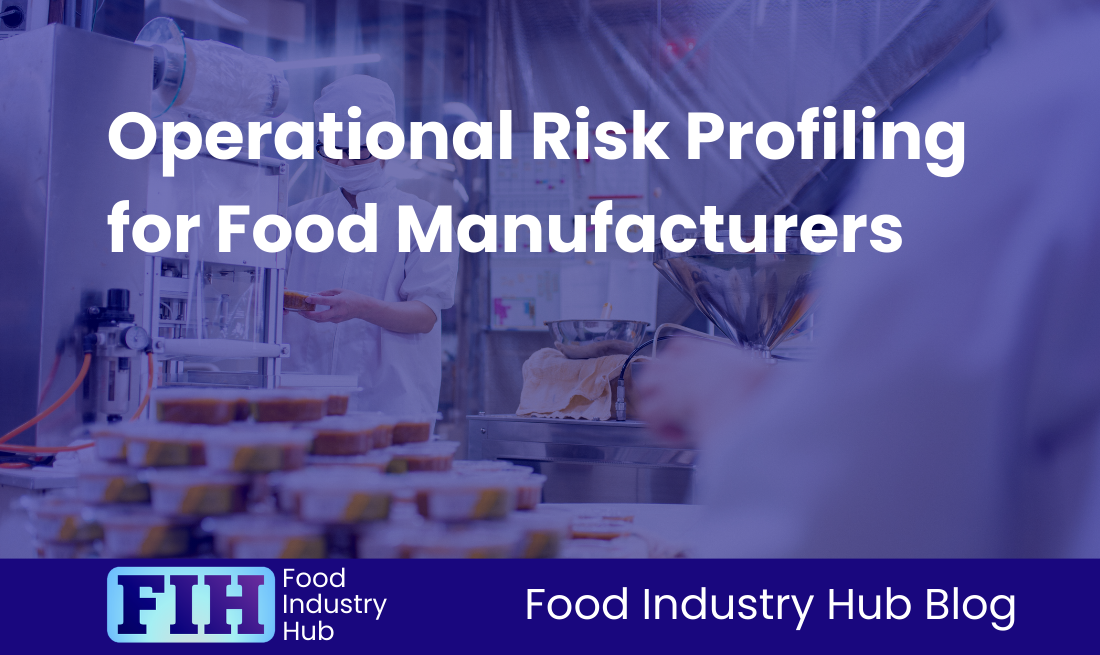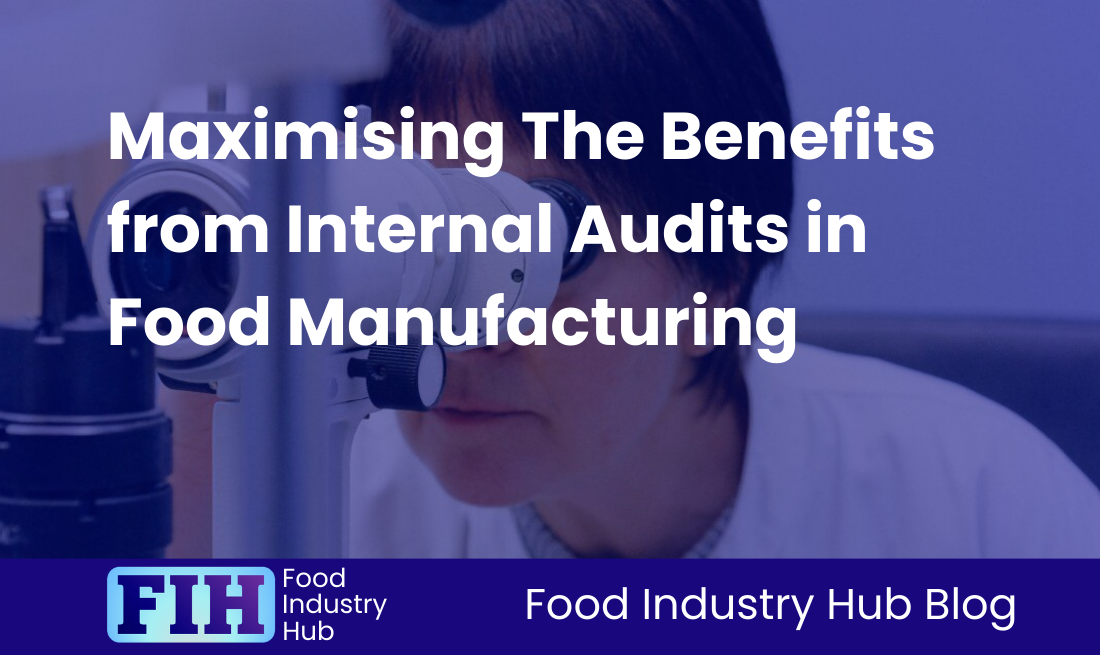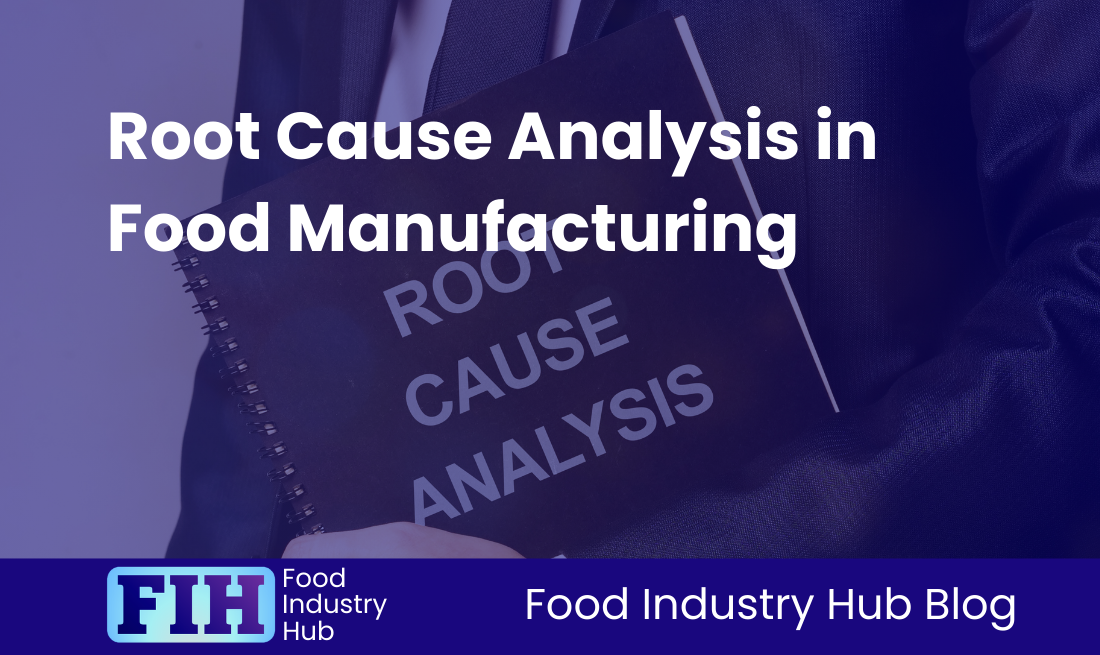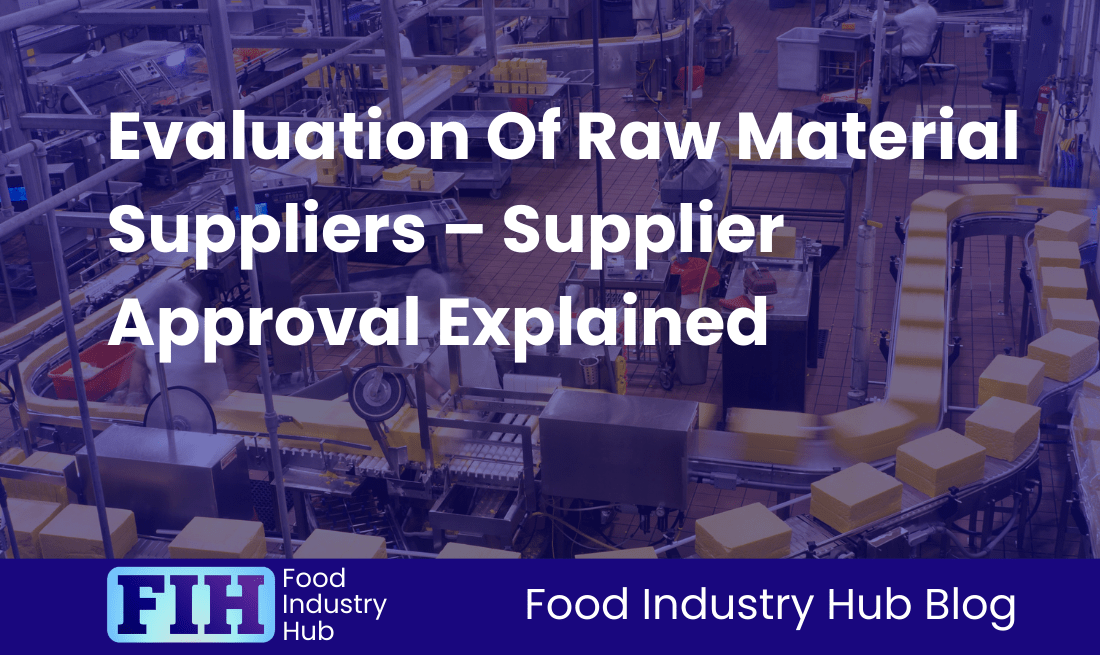Know: Audits (Internal and External)
Contents
Introduction
Key Takeaways
Audit Types and Frameworks: Staying Compliant with Global Standards
Auditor Qualifications and Independence: A Cornerstone of Audit Reliability
Audit Processes and Evidence Collection: Maintaining Transparency and Integrity
Audit Outcomes and Corrective Actions: Moving towards Continuous Improvement
Operational Benefits and Compliance: Proving Worth through Risk Management
Conclusion
Introduction
In the industry of food manufacturing, audits are fundamental tools that assure compliance with safety standards, quality assurance, legality, and authenticity. Both types of audits – internal and external – are significant in maintaining operational integrity and aligning practices with regulatory obligations. Internal audits carried out by the organisations facilitate the evaluation of food safety systems and practices. Such self-assessment supports continuous improvement and ensures adherence to policies and standards that include HACCP, BRCGS, and SQF. On the other hand, external audits, performed by independent bodies, offer an impartial compliance verification, safeguarding the interests of consumers and shareholders.
These audit processes extend beyond bureaucratic functions, they shape the food safety landscape significantly. By scrutinising key areas such as facility design, sanitation, and employee practices, audits ensure that food manufacturers uphold high standards of quality and legality. In addition, they validate the authenticity of products, ensuring compliance with labelling regulations and precise traceability throughout the supply chain.
The nuanced nature of audits within food manufacturing will be explored in this article, beginning with ‘Audit Types and Frameworks’, which will delve into the various classifications of audits and the guiding measures for compliance, including the importance of GFSI benchmarks. Following this, we’ll delve into ‘Auditor Qualifications and Independence’, highlighting the importance of competency and impartiality for auditors to generate reliable findings.
Additionally, we will consider ‘Audit Processes and Evidence Collection’, where transparency and robust documentation, along with thorough physical inspections play pivotal roles. The section on ‘Audit Outcomes and Corrective Actions’ will underscore the value of audits in identifying nonconformities and implementing strategies for continuous improvement. Concluding our discussion with ‘Operational Benefits and Compliance’, we will showcase how audits bolster risk management, protect public health, and contribute positively to an organisation’s reputation and operational efficiency.
This comprehensive exploration aims to equip food manufacturing professionals with practical insights on how to leverage audits for enhancing safety, quality, and compliance in their practices.
Key Takeaways
Internal and external audits serve as integral components of risk management and para-regulatory compliance within the food manufacturing sector. Internal audits facilitate evaluation of internal controls’ efficacy and risk management procedures, aiding organisations in pinpointing weaknesses and refining their risk strategies. These audits aid in promoting operational efficiency by providing insights for optimising various business procedures. On the other hand, external audits ensure that companies comply with regulatory standards, especially those set by the Global Food Safety Initiative (GFSI). Such impartial reviews enhance stakeholder confidence by affirming adherence to industry mandates and offering reliable third-party assurance.
Significance of Auditor Qualifications, Independence, and Ethics
The credibility of audit results significantly depends upon the qualifications, neutrality, and ethical responsibility of the auditors. It is necessary for auditors to have specific knowledge and skills pertaining to the industry standards and legal requirements to conduct efficacious audits. An auditor’s independence is necessary to ensure unbiased evaluations. To this end, auditors are expected to remain impartial, free from conflicts of interest, and stick to both ethical norms and professional conduct codes throughout the audit process.
Objective Evidence in Audits
Reliable audits demand the application of objective evidence and rigorous documentation, ensuring that conclusions are genuinely based on factual findings. Dependable audits lean on thorough documentation to corroborate compliance or identify non-conformities with predefined standards. Effective practices of document control are essential in upholding the integrity of audit records, which ensure transparency, and validate audit outcomes.
Corrective Action Plans and Their Efficacy
Corrective action plans (CAPs) are significant in transforming audit findings into tangible enhancements for ongoing advance. Audit results highlight non-conformities and areas in need of improvement, which then require effective corrective actions to rectify the irregularities. The execution of such plans helps instil a culture of continuous improvement by refining processes and controls. Regular follow-up audits are essential to verify the efficacy of CAPs, asserting that corrective actions are not confined to one-time fixes but a constant effort towards progress.
Beneficial Outcomes of Consistent Audits
Consistent auditing practices yield a multitude of benefits, including amplified operational efficiency, risk mitigation, and adherence to industry standards. By enhancing processes and rectifying inefficiencies, audits can lead to noteworthy cost savings and overall performance improvement. Frequent audits also support early risk identification and management, reducing regulatory non-compliance instances and promoting an accountable culture. In addition, they reinforce conformity with industry benchmarks, facilitating market credibility and assisting in the preservation of consumer trust.
Food Industry Hub Management Systems can significantly boost the effectiveness of your food safety and quality management system, leading to improved confidence and elevated quality assurance throughout your operations.
Audit Types and Frameworks: Staying Compliant with Global Standards
Audits play a significant role in the food manufacturing industry, valuable for upholding compliance with international benchmarks while certifying food safety. Comprehending the distinct roles of internal and external audits offers businesses an inclusive system necessary for regulatory observance.
Leveraging Internal Audits for Risk Management
Internal audits, executed by the organisation’s employees, primarily evaluate their internal procedures, compliance with established food safety systems, and identify potential improvements. These audits serve not just as cost-effective tools for continuous monitoring, but also prepare the groundwork for successful external audits by addressing possible concerns earlier on. This proactive strategy helps improve operational effectiveness and reinforces food safety programs, ensuring they align with industry standards like HACCP and GFSI benchmarks, such as BRCGS, SQF, and FSSC 22000.
External Audits: Enhancing Credibility through GFSI Benchmarking
Contrarily, external audits are carried out by independent, third-party auditors. These professionals verify compliance with regulatory standards or assurance schemes, providing an unbiased assessment necessary for securing key certifications. External audits not only emphasise a company’s commitment to food safety, they also enhance credibility, particularly for organisations aspiring to market their products to large retailers or maintain partnerships subject to recognised safety standards.
Adapting Audit Frequency to the Risk Landscape
The frequency of audits is directly correlated to various risk factors. These involve the nature of the products, alterations in production processes, and preceding audit results. For instance, high-risk environments or organisations that have implemented new systems may necessitate more frequent audits to minimise potential dangers. Regular audits enable businesses to proactively identify risks, ensuring compliance and enhancing the effectiveness of their overall food safety management systems.
Embracing the Digital shift: Remote Audits for Enhanced Compliance Evaluation
Remote audits have evolved as a practicable solution in the food safety compliance sector. They utilise digital technologies to carry out assessments without the requirement for physical presence. Advantages of this approach include cost savings, improved efficiency, and schedule flexibility. Through the use of tools like video conferencing and cloud-based documentation, remote audits can uphold audit integrity. However, they necessitate a robust technical infrastructure for reliability. For successful remote audits, it’s important to ensure all technology is tested in advance, and communication channels are established, increasing complexity but enhancing operational effectiveness.
Having a thorough understanding of various audit types—internal and external—alongside GFSI standards, risk factors, and the evolution in remote auditing measures, empowers food manufacturers to stay compliant efficiently and responsibly within a highly regulated industry.
Auditor Qualifications and Independence: A Cornerstone of Audit Reliability
The Role of Auditor Competency and Industry Expertise in Effective Audits
Auditor competency and industry expertise are essential for conducting successful audits within the food manufacturing sector. Auditors need an in-depth understanding of relevant auditing standards and regulations, particularly those related to food safety, such as GFSI-benchmarked standards. This technical proficiency allows them to assess compliance effectively, identify potential hazards, and deliver insights leading to process and quality improvements. Such professionalism enhances the reliability of audit results by providing objective evidence of both compliance and non-compliance, which is essential for initiating corrective actions and enhancing quality in food products.
The Significance of Independence in Audit Roles, Particularly in External Audits
Independence is a fundamental aspect contributing to the credibility of audits, especially in external evaluations. An independent auditor doesn’t have any vested interests that could sway their judgement, thereby ensuring a bias-free assessment of a company’s operations. In the food industry, where the safety and quality of products must remain uncompromised, such independence is particularly noteworthy, as it prevents external influences from undermining audit conclusions.
Ethical Accountability and Its Impact on Quality in Auditing Practices
Ethical accountability significantly contributes to the integrity and quality of auditing practices. Upholding professionalism, objectivity and integrity, auditors are guided by ethical principles. Following these principles not only bolsters the quality of audit findings but also promotes public trust in the process.
Maintaining Quality Audits: Key Auditor Competencies
To accomplish food safety audits effectively, auditors must exhibit a distinctive set of competencies, including a comprehensive understanding of industry-specific regulations and standards, analytical skills to evaluate evidence accurately, and the ability to articulate their findings clearly. Acquiring technical knowledge in areas such as HACCP (Hazard Analysis and Critical Control Points) is also indispensable as it enables auditors to evaluate risks adequately and suggest necessary improvements. These skills are crucial to ensure that audits are thorough, all-encompassing and aligned with industry best practices and regulatory requirements.
Effect of Competencies on the Reliability and Credibility of Audit Outcomes
The presence of relevant competencies has a direct impact on the trustworthiness and credibility of audit outcomes. Auditors equipped with the necessary skills can carry out rigorous assessments that meet compliance requirements and also pave the way for substantial improvements in safety and quality. An auditor’s ability to offer trustworthy, objective evidence boosts stakeholder confidence in the audit process, thereby supporting continuous development within the food manufacturing sector.
Preserving Audit Integrity through Auditor Independence
Maintaining a clear distinction in roles between auditors and the operational entities they audit is vital for ensuring audit integrity and independence. This separation is ensured in external audits by adhering to laid down regulations that restrict auditors from engaging in the auditee’s operational endeavours. This partition is key to ensuring unbiased assessment, thus maintaining the reliability of audit outcomes. For internal audits, auditor indepandance is safeguarded by auditors not auditing their own work.
Possible Compromises to Credibility and Audit Outcomes Due to Conflicts of Interest
Conflicts of interest can considerably compromise the integrity of audits as they can skew auditor objectivity. Financial interests or personal ties that influence an auditor’s judgement can cause these conflicts. When auditors face such conflicts, audit findings may be perceived as biased, severely undermining the credibility of the process. Organisations, therefore, must actively manage and disclose potential conflicts to preserve the integrity of audit results and maintain stakeholder trust.
Driving Accuracy in Auditing through Ethical Accountability
Ethical principles such as integrity, objectivity, and due diligence decisively affect the quality assurance of auditing. Enforcing these principles demands that auditors conduct assessments in a rigorous and neutral manner, creating a solid foundation for audit reports. Following ethical norms cultivates trust in the conducted audits and highlights the auditors’ commitment to professional accountability.
Sign-up for the Food Industry Hub Mail Service
We regularly produce new content for food industry professionals, and the Food Industry Hub Mail Service is the best way to stay up to date with the latest additions.
Signup today to be added to the Food Industry Hub mailing list.
Audit Processes and Evidence Collection: Maintaining Transparency and Integrity
For maintaining transparency and integrity in audits, objective evidence, documented records, and factory audits play indispensable roles in upholding food safety compliance.
Ensuring Credibility through Objective Evidence
The significance of objective evidence in audits cannot be overstated. Validating compliance with established food safety standards leans heavily on this type of evidence, which includes tangible records like documents, observable findings, and testimonials that support audit outcomes. Through these, audits can yield trustworthy results that reflect the actual practices of the audited business or activity.
Identified non-conformities necessitate comprehensive documentation, noting specific deviations from the standards, their relevant compliance implications, and the corrective actions proposed. Not providing detailed documentation can lead to potential legal complications and regulatory scrutiny. This highlights the importance of reporting non-conformities with precision and correctiveness [Source: Meritech].
Maximising Audit Preparedness through Document Control
Controlling documents effectively is a cornerstone of preparing for audits. It ensures that all required documentation is current and readily accessible. Digital storage and management of documentation come in handy for this purpose, streamlining the document retrieval process. A centralised system of digital repositories can manage essential documents like training records, maintenance logs, and previous audit findings, providing ready access to compliance documentation at all times.
Organisations can boost their document control capabilities by implementing strategies such as automating version control processes, consistently updating documents to reflect current practices, and training staff on the importance of accurate record-keeping. Regularly auditing the document control process itself can also ensure compliance with constantly developing regulations and minimise the risk of non-conformities that may arise from inadequate record-keeping.
Factory Audits: A Pillar of Comprehensive Food Safety Compliance
Factory audits play a key role in ensuring compliance with food safety standards. These audits meticulously assess different aspects of production facilities, including hygiene and sanitation practices, implementation of HACCP principles, and employee training. Such assessments help identify and rectify potential risk areas that could compromise food safety.
The results of audit evaluations are significant. They ensure compliance with applicable standards and also notably influence consumer trust. Successful audit records can enhance a company’s credibility and affirm its commitment to food safety. On the other hand, non-compliance or negative audit results can damage reputations and diminish consumer confidence. Hence, thorough and regular auditing practices are essential in maintaining food safety standards [Source: Food Safety Tech].
Audit Outcomes and Corrective Actions: Moving towards Continuous Improvement
Corrective Action Plans (CAPs) are essential for effectively addressing issues identified during audits. These plans devise a structured framework for systematically resolving problems, preventing their recurrence, and enhancing the performance of the entire organisation. A well-designed CAP consists of several key components: identification of audit findings, thorough root cause analysis, formulation of actionable steps, assignment of responsibilities, and establishment of completion timelines. This structured approach ensures that identified issues are addressed while promoting a culture of continuous improvement and compliance with standards, such as those defined by the Global Food Safety Initiative (GFSI).
Effective Corrective Actions: Tackling Problems at their Root
There are certain best practices which can be leaned on to enhance corrective action plans. Initially, conducting an in-depth root cause analysis is a necessary step to ensure the corrective actions can efficiently address the core issues instead of merely treating symptoms. Next, implementing SMART (Specific, Measurable, Achievable, Relevant, Time-bound) action items can significantly enhance the clarity and accountability of corrective measures. Comprehensive documentation and inter-team collaboration provide diverse perspectives and improve the effectiveness of the corrective actions being implemented. This collective approach enhances problem resolution while ensuring ongoing compliance with assurance standards [Source: Six Sigma].
Importance of Inter-Team Collaboration in Implementing Effective Corrective Measures
Collaborative efforts across various departments significantly augment the success of corrective actions. Such collaboration facilitates the sharing of diverse insights and an environment of joint accountability, ensuring effective addressing of the identified issues. Regular communication among teams bolsters the implementation process, streamlines efforts aimed toward resolving non-conformities, and establishes a unified approach to continuous improvement.
Protecting Consumers: Deciding the Fate of Non-Compliant Products
Proper management of non-compliant products identified during audit is essential in avoiding legal implications and reducing reputational damage. Organisations should promptly identify and isolate non-compliant products from distribution channels to prevent consumer exposure. Practical measures include conducting thorough risk assessments and determining the appropriate course of action—whether that involves product recalls or corrective measures. Transparency in communication with regulators, stakeholders, and consumers about the nature of the non-compliance and the steps taken to resolve it serves to manage reputational risks efficiently.
Harnessing Audit Insights for Continuous Improvement
Leveraging actionable audit insights expedites systemic improvements and can lead to a competitive advantage. Analysis of audit findings can highlight areas in need of enhancement, letting organisations prepare informed preventive measures. Incorporating these insights into standard operational practices enhances efficiency while ensuring compliance with regulatory or assurance scheme requirements. An audit management system can simplify monitoring of corrective actions and provide valuable data on trends over time, leading to enhanced operational performance and improved product quality.
Operational Benefits and Compliance: Proving Worth through Risk Management
Audits play an integral role in mitigating risks and building customer trust by identifying and addressing potential hazards at an early stage. Regular audits help enhance processes, improve operational efficiency and affirm compliance with food safety standards.
Minimising Risks through Regular Auditing
Routine audits are indispensable for the early identification of potential risks that could affect food safety and consumer trust. They not only help to identify hazards but also assess the level of compliance with industry standards such as HACCP and GFSI-benchmarked standards like BRCGS and FSSC 22000. Earlydetection of non-compliance allows food manufacturers to implement corrective measures swiftly, lessening the probability of foodborne illnesses and product recalls. This proactive approach not only enhances food safety but also boosts consumer confidence in the brand, which is key to maintaining market presence and sustainability in the food industry [Source: SQF Institute].
Ensuring Marketability through Standard Compliance
Acquiring certifications such as BRCGS and FSSC 22000 has a noteworthy impact on customer trust and acceptance. These highly recognised standards assure consumers that the products meet strict safety and quality protocols, thereby enhancing credibility of compliant brands. By adhering to these GFSI standards, manufacturers illustrate their strong commitment to food safety, which is directly proportional to their marketability and customer trust [Source: Meritech]. Additionally, obtaining these certifications may open doors to international markets, as many retailers give higher priority to suppliers with confirmed compliance to these standards.
Unveiling Operational Inefficiencies through Audits
In addition to risk mitigation, audits also have a fundamental role in highlighting operational inefficiencies that might affect cost-effectiveness and productivity. Thorough evaluations conducted during operational audits can detect areas where resources may be misused or processes that can be streamlined. Addressing these inefficiencies leads to significant cost savings and improved overall productivity. For example, operational audits can scrutinise internal controls and workflow processes, providing insights that enable businesses to optimise their operations and maintain competitiveness in a challenging market environment.
Adopting a strategic approach to implement audit findings to alleviate risks and bolster operational efficiencies represents a comprehensive outlook that goes beyond compliance to actualise long-term business benefits. Through regular audits, not only are processes refined and costs efficiency improved, but consumer trust is also fortified, each of which is essential for sustained success in the food manufacturing sector.
Conclusion
Audits are a fundamental tool for maintaining and enhancing compliance within the food manufacturing sector, not only in the UK, but also across EU and USA. Both internal and external audits, often benchmarked to the standards set by the Global Food Safety Initiative (GFSI), offer numerous insights into practices and areas that require attention.
The UK leverages audits to uphold food safety standards with the help of regulatory bodies like the Food Standards Agency (FSA). The UK ensures food hygiene and labelling requirements align with established guidelines [Source: Clear Border]. The European Commission utilises audits to enforce adherence to EU legislation related to food safety among its member states [Source: European Commission]. In the USA, agencies including the FDA and USDA perform audits to certify compliance with food safety regulations such as the Food Safety Modernization Act (FSMA).
Proactive auditing practices help create a robust food safety system. Internal audits allow companies to gauge compliance with their own standards, potentially highlighting areas that require improvement. External audits, which are undertaken by third-party auditors, validate adherence to standards such as those ratified by the GFSI. In light of the COVID-19 pandemic, remote auditing has garnered attention as a way to continue evaluations despite logistical hurdles.
The effectiveness and unbiased nature of audits hinge on the skillset and independence of the auditors. Auditors with the necessary skills and knowledge can accurately assess compliance and identify areas needing improvement. For instance, in the EU, the Directorate-General for Health and Food Safety employs accomplished auditors to enforce compliance with relevant regulations.
Collecting objective evidence is an integral part of assessing adherence and identifying areas of non-conformity with established standards. Such evidence may come in various forms, including documentation, test results, and observational findings. When non-conformities are identified, it’s necessary to devise and implement appropriate corrective actions. The findings from an audit often lead to recommendations for enhancing food safety measures, thereby reducing risk.
Audits offer a host of operational benefits. Regular audits contribute towards early detection of potential risks, ensuring that food products are safe and compliant. Further, the insights gained from audits can streamline processes, leading to enhanced operational efficiency, a component essential for sustained compliance with national and international standards and for successfully accessing various markets.
Effectual audit practices, led by skilled auditors and underpinned by an emphasis on objective evidence, create the bedrock for efficient food safety systems. As regulations evolve, the refinement and adaptation of auditing processes will be integral to success in the food manufacturing sector.
About The Food Industry Hub Knowledge Centre
The Food Industry Hub knowledge centre delivers informative content on a variety of topics pertinent to the food manufacturing industry.
You can return to all topics by clicking here.
From The Food Industry Hub Signposting Service
Additional resources from The Food Industry Hub Signposting Service.
From The Food Industry Hub Blog
Expanding on this topic with related content from our blog.













